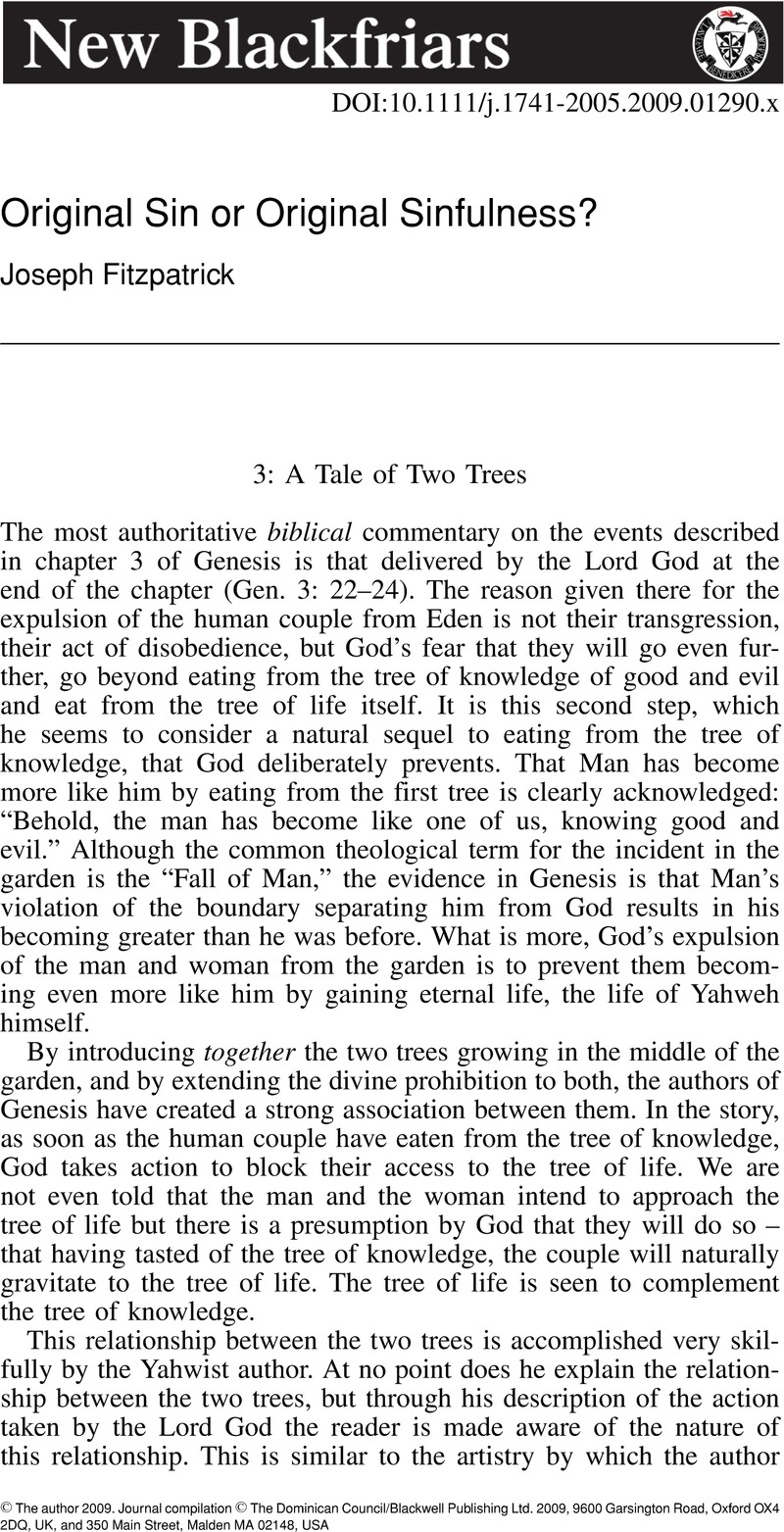No CrossRef data available.
Article contents
Original Sin or Original Sinfulness?
Published online by Cambridge University Press: 01 January 2024
Abstract

- Type
- Original Articles
- Information
- Copyright
- Copyright © The author 2009. Journal compilation © The Dominican Council 2009
References
1 Steiner, George, Errata: An examined life, 1997 (Phoenix edition 1998)Google Scholar, 84–5.
2 Ibid., 85.
3 The Grail translation of the Psalms (Fontana Collins 1963).
4 St Augustine, Confessions, Book 1, Chapter 1. There are many editions.
5 Lonergan, Bernard SJ, “Natural Knowledge of God” in A Second Collection (Darton, Longman and Todd 1974), 127–8Google Scholar; also ch 9 of Collected Works of Bernard Lonergan, Vol 17 (University of Toronto Press, 2004). Karl Rahner has a similar insight which he expresses somewhat differently. See Rahner, Karl SJ, The Spirit in the Church (Burns and Oates 1979)Google Scholar, 14–15.
6 Temple, William, Nature, Man and God (Macmillan 1934), 366Google Scholar.
7 Blackburn, Vivienne, Dietrich Bonhoeffer and Simone Weil: A Study in Christian Responisveness (Peter Lang 2004), 151Google Scholar.
8 Ibid., 150. Bonhoeffer's comments can be found in his Ethiks al Gestaltung.
9 Barr, James, The Garden of Eden and the Hope of Immortality (SCM Press 1992), 84Google Scholar.
10 See Evans-Pritchard, E.E., Theories of Primitive Religion (Oxford University Press 1965)Google Scholar.
11 Douglas, Mary, Natural Symbols: Explorations in Cosmology (The Cresset Press 1970), 28Google Scholar.
12 Power, John, “The Call to Penance in the Old Testament” in Sin and Repentance, Ed. O’Callaghan, Denis (Gill and Son 1967), 11–12Google Scholar.
13 Ibid., 8.
14 Ibid., 15.
15 Bernard Lonergan, summarizing the views of Paul Ricoeur, comments: “among the Hebrews, moral defect was first experienced as defilement, then conceived as the people's violation of its covenant with God, and finally felt as personal guilt before God, where, however, each later stage did not eliminate the earlier but took it over to correct it and to complement it.” Method in Theology (Darton, Longman and Todd, 1972), 88Google Scholar.
16 Pelikan, Jaroslav, Human Culture and the Holy (SCM Press, 1959), 72–3Google Scholar.
17 Ibid., 82–3.




